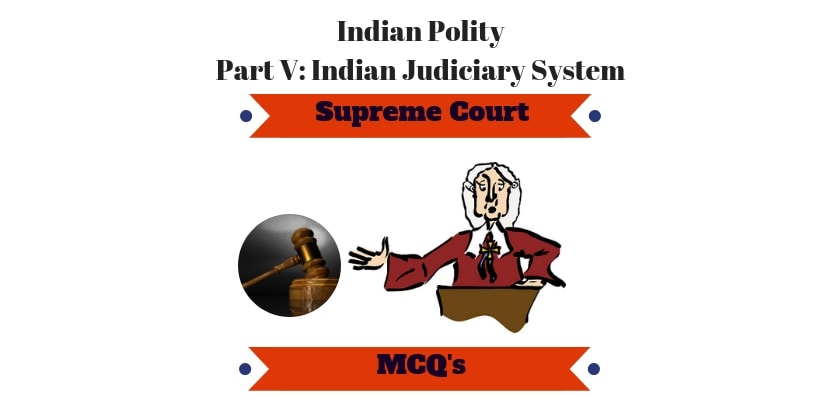31. Which among the following statements is/are NOT true?
1. Supreme Courts can issue writs that relate with only the Fundamental Rights of citizens
2. High Courts can issue writs on issues that relate with the Fundamental Rights of citizens as well as for other reasons
3. The jurisdiction with regards to writs is wider for the High Courts as compared to Supreme Court of India
4. The writ jurisdiction of the Supreme Court can be extended by the Parliament, but never decreased
A. Only 1
B. Only 1, 2 and 3
C. Only 4
D. All are true
[toggle] Answer – D[/toggle]
32. In which case did the Supreme Court restore the primacy of the Fundamental Rights over the Directive Principles of State Policy?
A. Golaknath Case
B. Keshavananda Bharti Case
C. Minerva Mills Case
D. All the above cases
[toggle] Answer – A [/toggle]
33. Under a single, integrated, hierarchical judicial system, the High Courts in the States are directly under the:
A. President
B. Governor of the State
C. Union Parliament
D. Supreme Court
Ans: D.
34. For the enforcement of Fundamental Rights, the Supreme Court may issue a/an:
A. decree
B. ordinance
C. notification
D. writ
[toggle] Answer – D[/toggle]
35. The Supreme Court of India decides the disputes regarding the election of:
A. The Prime Minister
B. The Speaker and Deputy Speaker
C. The President and Vice-President
D. All of the above
[toggle] Answer – C[/toggle]
36. The Supreme Court was set up under:
A. Pitt’s India Act
B. Regulating Act
C. Indian Councils Act, 1861
D. Indian Councils Act, 1892
[toggle] Answer – B [/toggle]
37. Which Judge of the Supreme Court was unsuccessfully sought to be impeached?
A. Justice H.R. Khanna
B. Justice A.N. Grover
C. Justice M. Hidayatullah
D. Justice Ramaswami
[toggle] Answer – D[/toggle]
38. If the Parliament passes a law which is against the Constitution, it can be declared as unconstitutional by the:
A. Supreme Court
B. President
C. Chief Justice of India
D. A bench of High Court Judges
[toggle] Answer – A [/toggle]
39. The rules for regulating the practice and procedure of the Supreme Court under Article 145 of the Constitution are made by the:
A. President of India
B. Supreme Court with the approval of the President of India
C. Supreme Court alone
D. Supreme Court in consultation with the Bar Council of India
[toggle] Answer – B [/toggle]
40. The salaries of the Judges of the Supreme Court of India:
A. can never be reduced under any circumstances
B. can be reduced during their term of office
C. cannot be reduced during the term of their office except during a financial emergency
D. are fixed by President of India
[toggle] Answer – C[/toggle]

